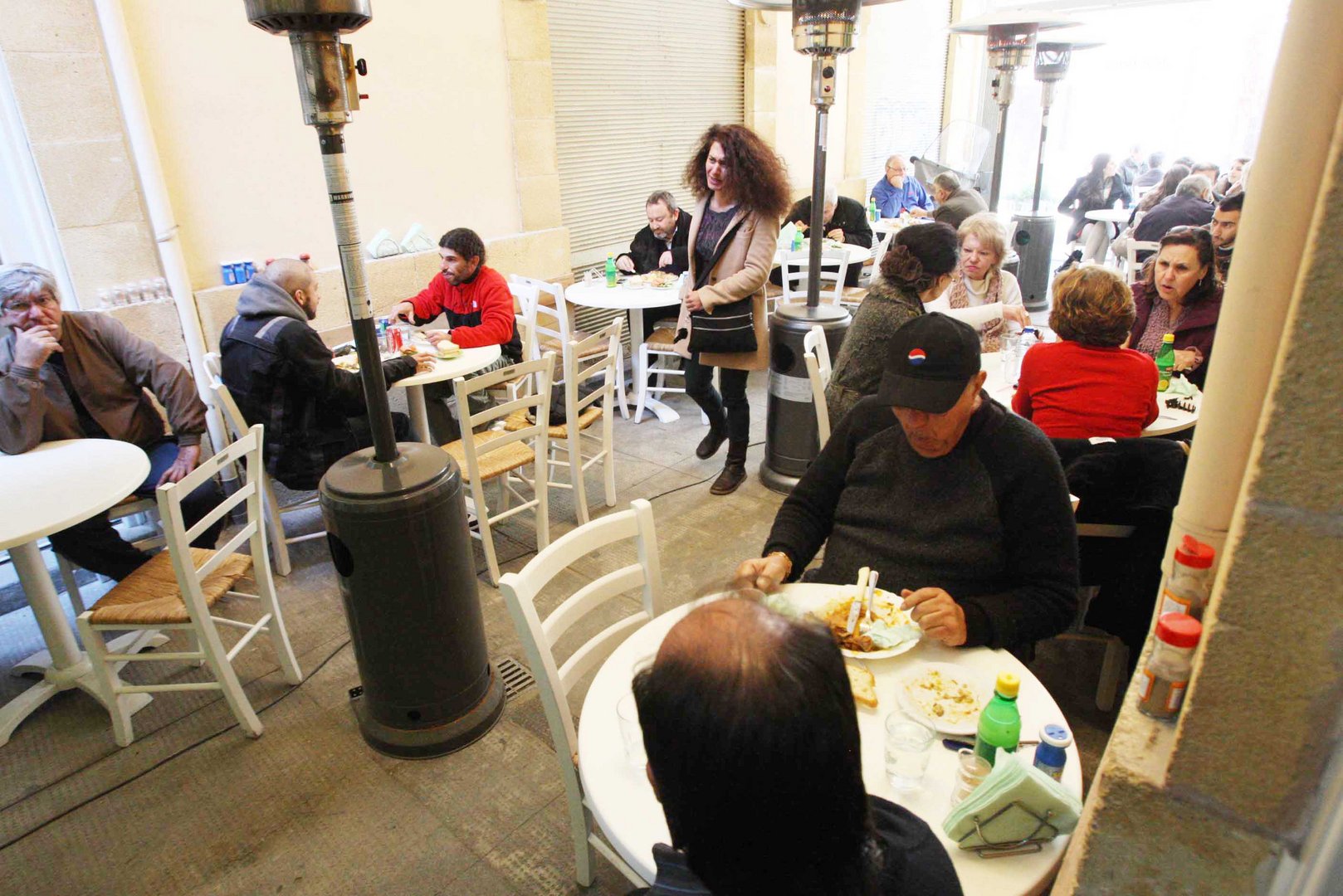You gonna eat that? More and more Cypriots are saying yes – with a study finding that food waste is decreasing while finishing leftovers is becoming more common.
The percentage of those who often or always throw away leftover food has steadily decreased over the past few years and hit a new low of 16 per cent in 2023, down from 18 per cent in 2020.
The results of the FOODprint study were presented and analysed on Friday by Kyriacos Parpounas, head consultant of Parpounas Sustainability Consultants.
“In Cyprus we consider a taverna to be good if there’s still platefuls of food left on the table when we leave,” he said.
And while that may be the case, more Cypriots are now taking that food home in doggie bags – meaning less ends up in the bin.
He highlighted that as another positive trend leading to less waste. Parpounas attributed that as partly being down to waiters being better trained in asking customers if they wish to take the leftovers home.
Indeed, 17 per cent take food back home with them of whom the researchers found tend to be older, female and better educated.
Parpounas noted, however, that our eyes are bigger than our stomachs: we still tend to cook larger portions than we eat.
But that appears to be offset slightly, as those eating leftovers rose from 64 per cent in 2020 to 73 per cent in 2023.
That was partly attributed to also storing leftovers more effectively.
Parpounas pointed to other cultural trends as leading to over purchasing of food – what happens if guests suddenly turn up? – as in Cyprus offering visitors a bite to eat is common, and expected, practice.
But there’s improvement there too, with the percentage of those preparing too much food decreasing from 61 per cent to 52 per cent.
He welcomed the results, saying that positive behaviours are on the rise.
And while it may sound like common practice to some, Parpounas explained that Cypriots are increasingly preparing shopping lists according to their needs – not overbuying – and are storing their products more appropriately.
The study also found that young men on higher incomes order the most food, while in the lower income brackets or larger families it is more common to eat leftovers.
Of those, it found that 33 per cent give their leftovers to pets, another third freezes the food for later use and 28 per cent use it in the near future for meals.
It further found that 21 per cent of households compost their leftovers but even then not on a regular basis, with only six per cent doing it systematically. Of the respondents, 40 per cent said they do not compost due to a lack of awareness or information while 27 per cent said they are unable to do so due to a lack of space.
But the study also found that some habits are proving hard to break: 33 per cent throw away 11-20 per cent of their shopping. The researchers said that on average that means every household throws away over a fifth of the products they buy, and this has remained constant throughout the three studies – carried out each year since 2020.
As for those who do throw away chunks of their shopping, the main reason cited was the expiry date.
“That’s an issue because perhaps many are not reading the dates correctly or are not aware of each product’s criteria, such as milk which can – if stored correctly – last another three to four days past its expiration date,” he said.
The majority who throw food away said they feel bad about it, but only 30 per cent said they feel that throwing away food has an environmental impact.
The study included 510 respondents over the age of 18 who are either in charge of the household shopping or cooking. Answers were compiled between February 28 and March 2.







Click here to change your cookie preferences